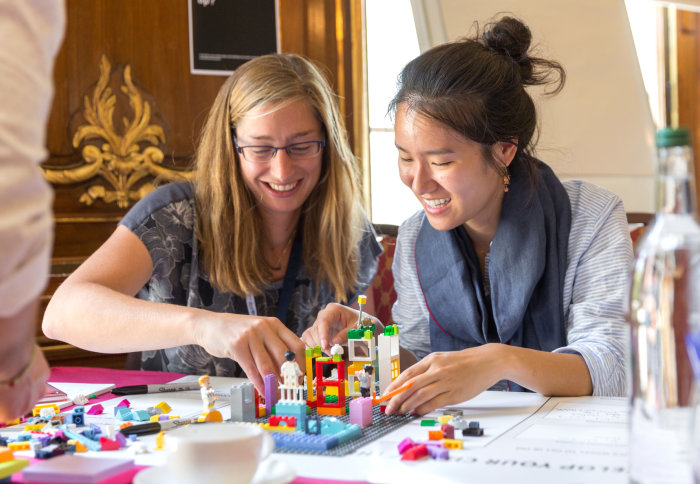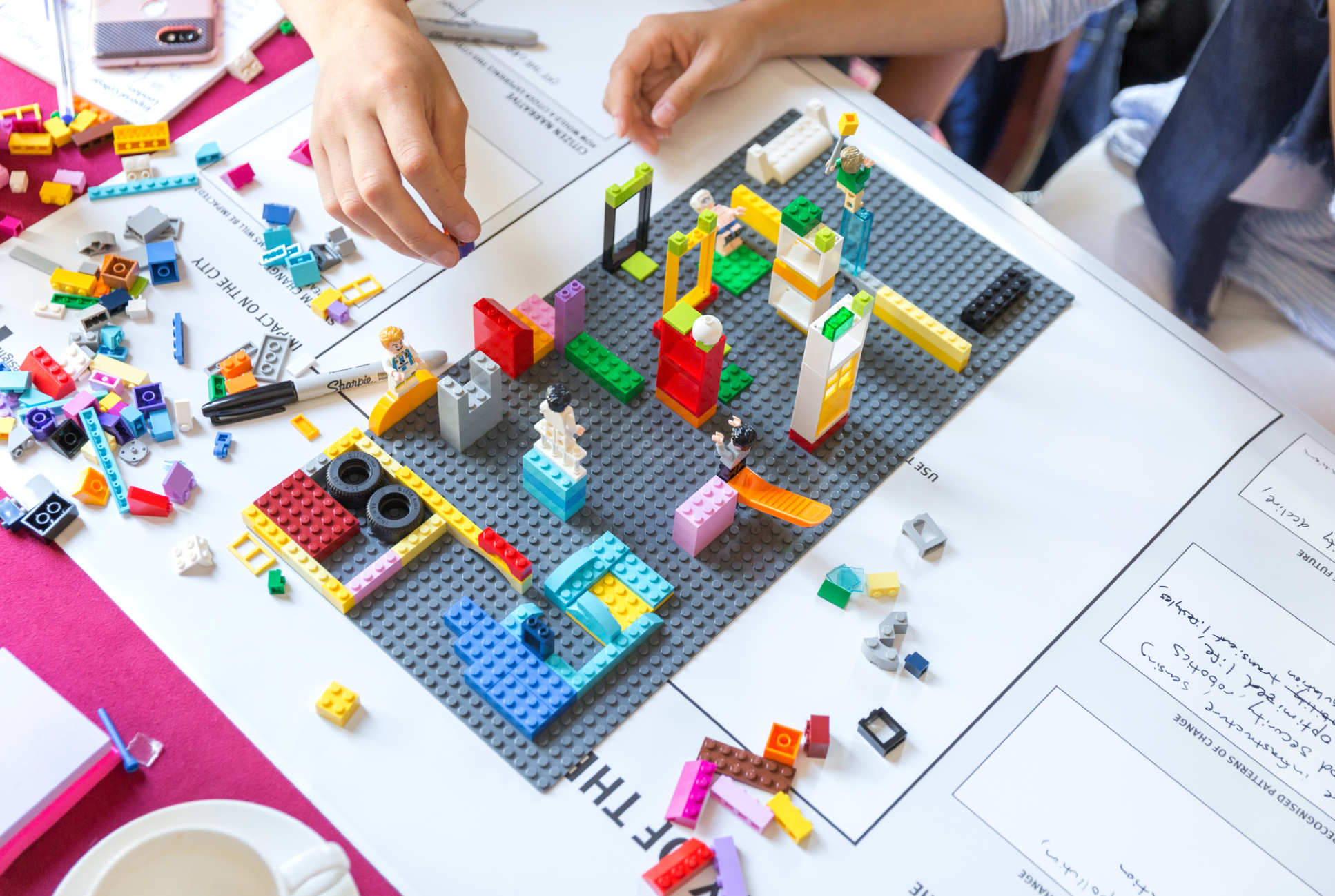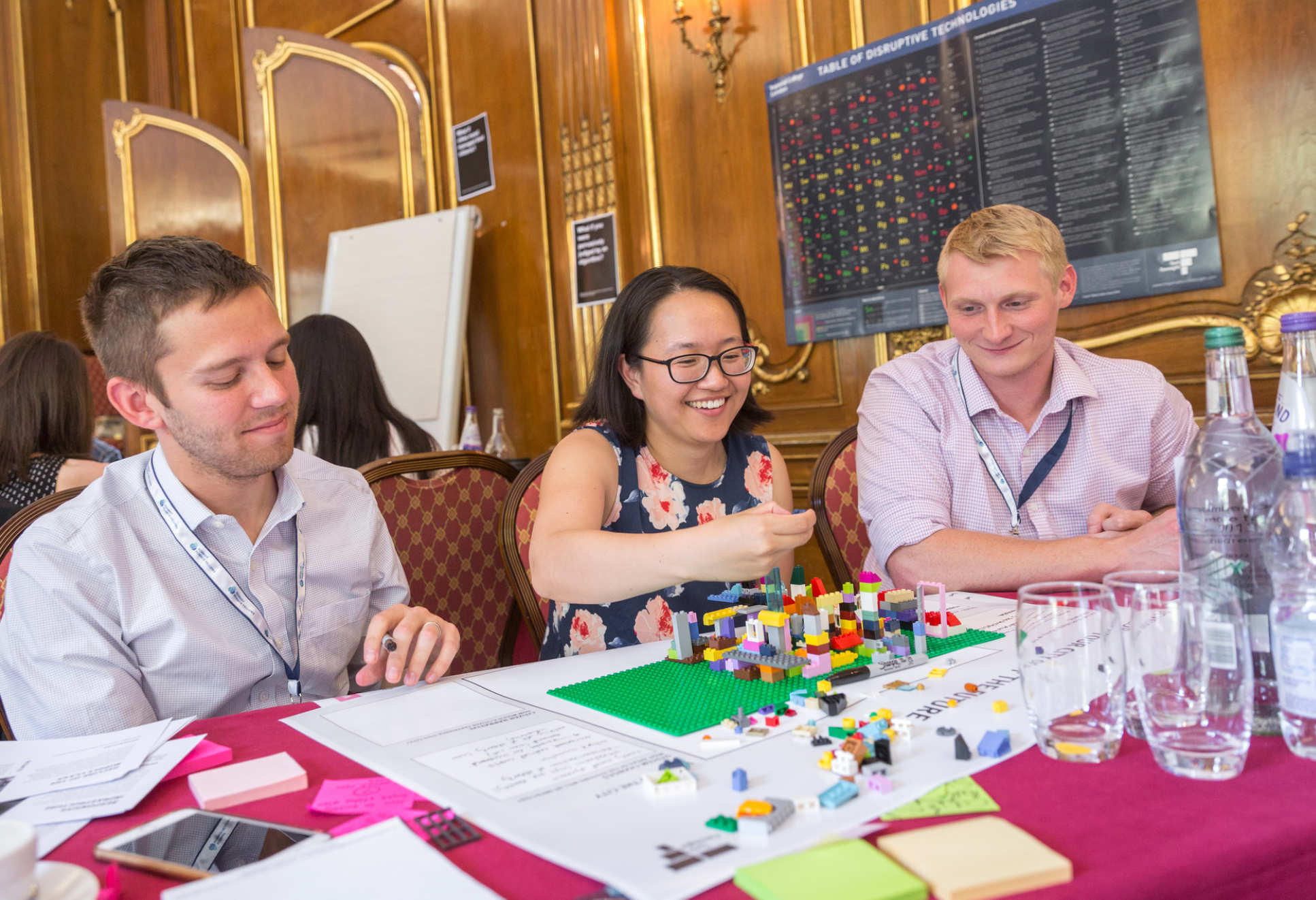Top international scholars discuss how to tackle future city challenges

Leading scholars from the Schmidt Science Fellows Programme took part in an Imperial Tech Foresight workshop on the future of urbanisation.
Scholars from institutions including MIT, Harvard University and Stanford University discussed and explored potential solutions to future global challenges during the workshop.
Foresight is a strategic approach that helps individuals decipher what is changing in the world and think of how they may want to respond.
I have learnt about forecasting the future, and now I feel I can contribute to the future I want to build. Karl Barber Workshop participent
The workshop allowed the fellows to consider radical solutions to challenges posed by urbanisation, using creative ways to model future cities, culminating in a prototype of the citizen experience built with Lego.
Professor Eric Yeatman, Department of Electrical and Electronic Engineering, supported the workshop and said: “The purpose of this workshop is not just to tell participants about research and work taking place about Imperial, but also to encourage them to consider the broader implications of this for society. We want them to think about cities in the future and the implications of what we’re doing now.”

Real-life implications
The Department of Chemical Engineering’s Dr Christoph Mazur also supported the workshop and said: “The Tech Foresight team have been able to create a space and environment where fellows from around the world and from different disciplines are able to discuss a topic in an innovative way, with the help of Lego. This will help them to think about the real-life implications of their own research.”
The Tech Foresight team wanted the Schmidt Science Fellows to gain tools enabling them to critically consider alternative futures, and apply this knowledge to their own discoveries and research.
We spoke with some of the attendees to find out more about their experience:
Jielai Zhang has just finished a PhD in Astronomy & Astrophysics at the University of Toronto. She did her undergraduate studies at the University of Sydney, during which she spent an exchange year at Imperial in the Department of Mechanical Engineering. Next she will study medical imaging at the University of Oxford.
New technologies
She said: “I found this workshop challenging as it encouraged me to think about what forces can have huge effects on the future. As a scientist, it is important to think about how new technologies have an impact on what science can do in the future. The science of foresight allows us to be more imaginative.”

After completing a PhD in synthetic biology at Yale University, Karl Barber will be going to Harvard Medical School to do a postdoc. He said: “Today has helped me as a biologist and as a scientist in general to think about problems others are facing and how I can apply this to my work.
“I have learnt about forecasting the future, and now I feel I can contribute to the future I want to build.”
Fred Richards has just finished a PhD at the Univ ersity of Cambridge studying Earth Sciences. Next he will be going to Harvard University to work on improving future sea levels predictions.
ersity of Cambridge studying Earth Sciences. Next he will be going to Harvard University to work on improving future sea levels predictions.
He said: “This workshop has taught me the practice of thinking about future scenarios. What I will take away from this workshop is the importance of always taking the time to think about what changes in society mean for me and the implications of what is happening now on the future.”
The Schmidt Science Fellows are taking part in the Global Meeting Series programme in the UK.
Article text (excluding photos or graphics) © Imperial College London.
Photos and graphics subject to third party copyright used with permission or © Imperial College London.
Reporter
Joanna Wilson
Communications Division